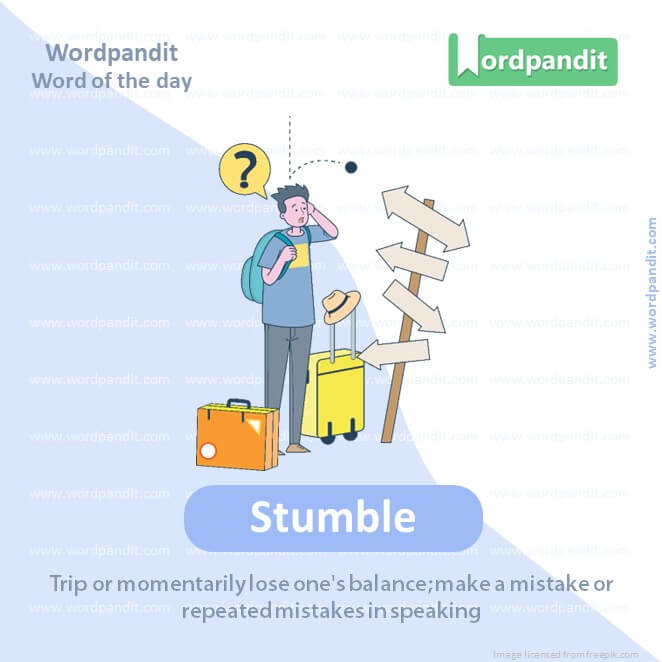Daily Vocabulary Words: List of Daily Used Words in Leading Indian Newspapers
Hi there. Welcome to this special section @ Wordpandit. Our endeavour here is straightforward: highlighting daily vocabulary words that you would come across in leading newspapers in the country. We have included the following newspapers in our selection:
• The Times of India
• The Economic Times
• Hindustan Times
• Mint
• Indian Express
We are putting in extensive work to develop your vocabulary. All you have to do is be regular with this section and check out this post daily. This is your repository of commonly used words; essentially, we are posting a list of daily used words. Hence, this has significant practical application as it teaches you words that are commonly used in leading publications mentioned above.
Visit the website daily to learn words from leading Indian newspapers.
WORD-1: BEQUETH
CONTEXT: The old man decided to bequeth his entire estate to his eldest son.
SOURCE: The Times of India
EXPLANATORY PARAGRAPH: Bequeth is like giving someone a gift. Imagine, if you have your favorite teddy bear, and you want your little brother to have it after you grow up, you are ‘bequething’ it to him.
MEANING: To leave something to someone else, especially in a will (verb).
PRONUNCIATION: bee-kweth
SYNONYMS: leave, give, hand down, pass on, grant, bestow, devise
USAGE EXAMPLE:
1. He decided to bequeth his vast estate to his daughter.
2. Grandma bequethed her diamond bracelet to her granddaughter.
3. The king bequethed his treasures to the people before his death.
4. She bequethed her home to the church after her death.

WORD-2: STUMBLE
CONTEXT: She stumbled on the uneven pavement but quickly regained her balance.
SOURCE: The Economic Times
EXPLANATORY PARAGRAPH: Stumble is like tripping on a rock while you’re running. You didn’t mean to do it, but your foot caught on something, and you almost fell. That’s what we call a ‘stumble’.
MEANING: Trip or momentarily lose one’s balance; make a mistake or repeated mistakes in speaking (verb).
PRONUNCIATION: stuhm-bul
SYNONYMS: trip, falter, stagger, tumble, lurch, slip, fumble
USAGE EXAMPLE:
1. He took a few steps then stumbled on the uneven footpath.
2. She stumbled over her words during the presentation.
3. Be careful not to stumble on the toys lying on the floor.
4. The kid stumbled while learning to walk.

WORD-3: PATRIARCH
CONTEXT: As the family patriarch, he had the final say in all major decisions.
SOURCE: Hindustan Times
EXPLANATORY PARAGRAPH: Patriarch is like your grandfather who is loved and respected by everyone in your family. He is often seen as a wise and guiding figure, like a superhero.
MEANING: The male head of a family or tribe; an older man who is respected for his wisdom or influence (noun).
PRONUNCIATION: pay-tree-ark
SYNONYMS: forefather, elder, sire, head, leader, senior
USAGE EXAMPLE:
1. He is the patriarch of the family and everyone respects his decisions.
2. The tribe’s patriarch was a wise and just leader.
3. The patriarch of the royal family celebrated his 85th birthday.
4. The patriarch held an important position in our community.

WORD-4: UNCEASING
CONTEXT: The unceasing noise from the construction work was driving the residents crazy.
SOURCE: Mint
EXPLANATORY PARAGRAPH: Unceasing is when something keeps going and doesn’t stop. Like, the way your golden retriever keeps chasing his tail without a break, we call it ‘unceasing’.
MEANING: Not coming to an end; continuous (adjective).
PRONUNCIATION: uhn-see-sing
SYNONYMS: incessant, continuous, constant, never-ending, relentless, perpetual, nonstop
USAGE EXAMPLE:
1. The unceasing rain made the journey difficult.
2. Her unceasing efforts finally paid off when she won the race.
3. The unceasing chatter of the birds woke me up early.
4. His unceasing dedication to work is commendable.
WORD-5: DISEMBARK
CONTEXT: After a long flight, the passengers were happy to finally disembark the plane.
SOURCE: Indian Express
EXPLANATORY PARAGRAPH: Disembark is like when you get off from your school bus. Once you reach your school or home, you ‘disembark’ or get off the bus.
MEANING: To exit a ship, vehicle, or aircraft (verb).
PRONUNCIATION: dis-em-bark
SYNONYMS: exit, alight, depart, disembogue, leave, get out, deplane
USAGE EXAMPLE:
1. The passengers were told to disembark from the plane.
2. They disembark from the bus when they reached School.
3. After a long sea journey, they were relieved to disembark.
4. The captain was the last to disembark the ship.
WORD-6: Undermines
CONTEXT: The manager’s harsh criticism completely undermined the employee’s confidence.
SOURCE: The Times of India
EXPLANATORY PARAGRAPH: Undermine is when someone or something tries to ruin or weaken something else. Like when someone tries to spoil your sandcastle by throwing water at it, they’re trying to ‘undermine’ your work.
MEANING: To weaken or damage something, often gradually or without being noticed (verb).
PRONUNCIATION: uhn-der-mine
SYNONYMS: weaken, sabotage, subvert, undercut, thwart, destabilize
USAGE EXAMPLE:
1. Constant criticism undermines a child’s confidence.
2. He tried to undermine my authority by challenging every decision I made.
3. Their relationship was undermined by financial difficulties.
4. Smoking undermines your health.
WORD-7: Chaste
CONTEXT: She led a chaste life and devoted herself fully to her work.
SOURCE: The Economic Times
EXPLANATORY PARAGRAPH: Chaste is like anything pure and clean. Like fresh snowfall in the morning that hasn’t been touched by anyone or anything, we call it ‘chaste’.
MEANING: Pure or virtuous, often with regard to sexual purity (adjective).
PRONUNCIATION: chayst
SYNONYMS: virtuous, decent, modest, pure, innocent, clean
USAGE EXAMPLE:
1. She led a chaste life devoted to her studies.
2. The poem was a chaste expression of love.
3. She preferred chaste white flowers for her wedding bouquet.
4. The mountains were chaste and untouched in early morning.
WORD-8: Saboteurs
CONTEXT: The saboteurs were caught trying to disrupt the railway lines.
SOURCE: Hindustan Times
EXPLANATORY PARAGRAPH: Saboteurs are like cartoon villains who always try to spoil the hero’s plans. They create problems and cause things to go wrong.
MEANING: Persons who intentionally cause damage to, destroy, or hinder something (noun).
PRONUNCIATION: sabo-turz
SYNONYMS: vandal, destroyer, wrecker, attacker, disrupter, underminer
USAGE EXAMPLE:
1. The saboteurs were caught before they could damage the building.
2. The police have launched a nationwide hunt for the saboteurs.
3. Saboteurs tried to disrupt the peaceful protest.
4. The bridge was blown up by saboteurs during the war.
WORD-9: Distraught
CONTEXT: She was distraught after hearing the news of her father’s illness.
SOURCE: Mint
EXPLANATORY PARAGRAPH: Distraught is a feeling when you are very upset or worried, like when you can’t find your favourite toy, you feel ‘distraught’.
MEANING: Very worried, nervous, or upset (adjective).
PRONUNCIATION: dis-trot
SYNONYMS: upset, agitated, distressed, tormented, troubled, perturbed
USAGE EXAMPLE:
1. She was distraught over the loss of her pet.
2. The news of his sudden illness left her distraught.
3. He was distraught when he couldn’t find his favourite book.
4. She was too distraught to speak after hearing about the accident.

WORD-10: APARTHEID
CONTEXT: His memories of life under apartheid were a moving testament to the indomitable spirit of those who endured such difficult times.
SOURCE: The Guardian
EXPLANATORY PARAGRAPH: Apartheid was a time a long time ago in South Africa when the people who ruled the country made laws saying that people with different color skin had to live in different places and couldn’t do the same things. It was very unfair and wrong.
MEANING: A system of institutionalized racial segregation that existed in South Africa and the Southwest. (Noun).
PRONUNCIATION: uh-PART-haid or uh-PAR-tate
SYNONYMS: Racism, Prejudice, Separatism, Discrimination, Bias.
USAGE EXAMPLE:
1. He grew up during the APARTHEID era.
2. The end of APARTHEID was celebrated globally.
3. They fought against APARTHEID and discrimination.
4. Nelson Mandela was a famous anti-APARTHEID activist.
vocabulary tricks
The proficiency of a language is often determined by the breadth of vocabulary. To effectively communicate, one must constantly expand their vocabulary. Many lean on ‘vocabulary tricks’ to speed up this process, enabling instantaneous recall and usage of new words. However, as these strategies require a methodological approach, the question becomes: how should vocabulary tricks be effectively learned?
The learning process involving vocabulary tricks commences with the practice of contextual reading. Engulfing oneself in a wide range of texts, from novels to scientific articles, presents new words in various contexts. This provides an understanding of their natural usage and subtler nuances. More importantly, it provides space for the application of the first trick – the Guessing Trick. This vocabulary trick forces the learner to deduce the meaning of the novel term based on its use in the text, sharpening linguistic intuition.
To cement new words, vocabulary tricks often suggest making personal connections. For instance, the Visualisation Trick is connecting visual images related to the word’s meaning. A vivid image associated with a word tends to stick longer in our brains, ensuring quick recall.
Yet another amongst clever vocabulary tricks is the Mnemonic Trick. Through this, learners construct an acronym or sentence using the new words. This trick involves more creativity and unique affiliations with the words, establishing stronger recall links.
Lastly, the Root Analysis Trick allows you to dissect unfamiliar words and identify parts you recognize – roots, prefixes, or suffixes. This vocabulary trick adds a new layer of understanding, making it easier to remember and recognize similar words.
However, the effectiveness of vocabulary tricks relies on their implementation and consistent usage. While they are dynamic tools, their absorption must be passive and continual. It is crucial, therefore, to incorporate these vocabulary tricks in your daily routine to get the most out of them. In the blink of an eye, words that once seemed alien become familiar friends. Hence, mastering these vocabulary tricks is the key to unlocking an expansive vocabulary and refining language proficiency.













